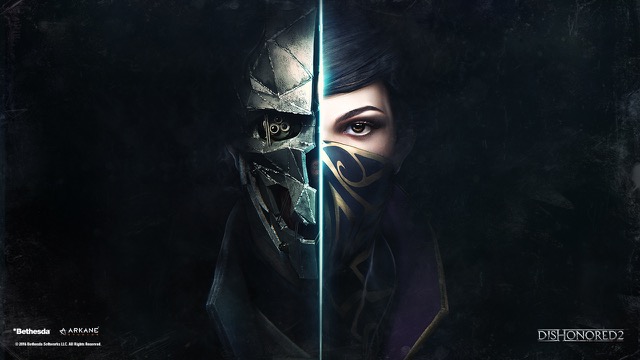Dishonored
Dishonored 2 - Review
Written by: Tom Blaich

There is a lot of stuff that I really love about the Dishonored series. They nailed down stealth gameplay in a way that few other games have ever managed, allowing you to be either brutally efficient killing machine or stealthy, nonviolent avenger. There are so many great things that start to add up to make Dishonored 2 a great game. In many ways it’s better than the first, giving you options that you never knew you wanted until they were presented to you. But in two crucial ways it falls short for me. I like the way that this game plays but the story itself does nothing to pull me through the worlds. It feels like a flimsy excuse to put your characters back into the same situation as they were in during the first game.
Comments
Bethesda's Review Policy
Written by: Tom Blaich
Much has already been said about Bethesda’s decision last year to stop sending out early review copies of their games to let “everyone, including those in the media, experience our games at the same time.” It is bad for many people, like those behind large websites, but most importantly it affects the consumers and how much information they have when they go to the store to pick out a product. It does actually benefit one other group besides Bethesda: small sites like ours that would never receive these copies in the first place. I’m not a fan of this policy by any means, but it allows me to sit on the same playing field as a writer for IGN, Polygon, Kotaku, or others.
When Dishonored 2 came out, I got it the same day that everyone else did. I was able to play through it twice that weekend, and four days later I published my review. I managed to beat a lot of major publications to press (due in part to my ability to focus on one review instead of many things at once), and while being able to do this did benefit our site, letting us see a tangible traffic boost from it, it had no way for me to help those people that wanted to buy the game on launch day.
We don’t get many pre-release copies of games at this point. Most of our reviews come one to two weeks after a game has launched, and are aimed at the smaller group of players who are waiting to buy a game. But a large portion of a game’s sales happen launch or in the week following, and we cannot help these people. Traditionally, this is where larger outlets have been able to come in with Day One or pre-release reviews based off of early copies provided by the publisher. This lets Day One purchasers make informed decisions about how to spend their money and if the new game is worth it. Read More…
Much has already been said about Bethesda’s decision last year to stop sending out early review copies of their games to let “everyone, including those in the media, experience our games at the same time.” It is bad for many people, like those behind large websites, but most importantly it affects the consumers and how much information they have when they go to the store to pick out a product. It does actually benefit one other group besides Bethesda: small sites like ours that would never receive these copies in the first place. I’m not a fan of this policy by any means, but it allows me to sit on the same playing field as a writer for IGN, Polygon, Kotaku, or others.
When Dishonored 2 came out, I got it the same day that everyone else did. I was able to play through it twice that weekend, and four days later I published my review. I managed to beat a lot of major publications to press (due in part to my ability to focus on one review instead of many things at once), and while being able to do this did benefit our site, letting us see a tangible traffic boost from it, it had no way for me to help those people that wanted to buy the game on launch day.
We don’t get many pre-release copies of games at this point. Most of our reviews come one to two weeks after a game has launched, and are aimed at the smaller group of players who are waiting to buy a game. But a large portion of a game’s sales happen launch or in the week following, and we cannot help these people. Traditionally, this is where larger outlets have been able to come in with Day One or pre-release reviews based off of early copies provided by the publisher. This lets Day One purchasers make informed decisions about how to spend their money and if the new game is worth it. Read More…